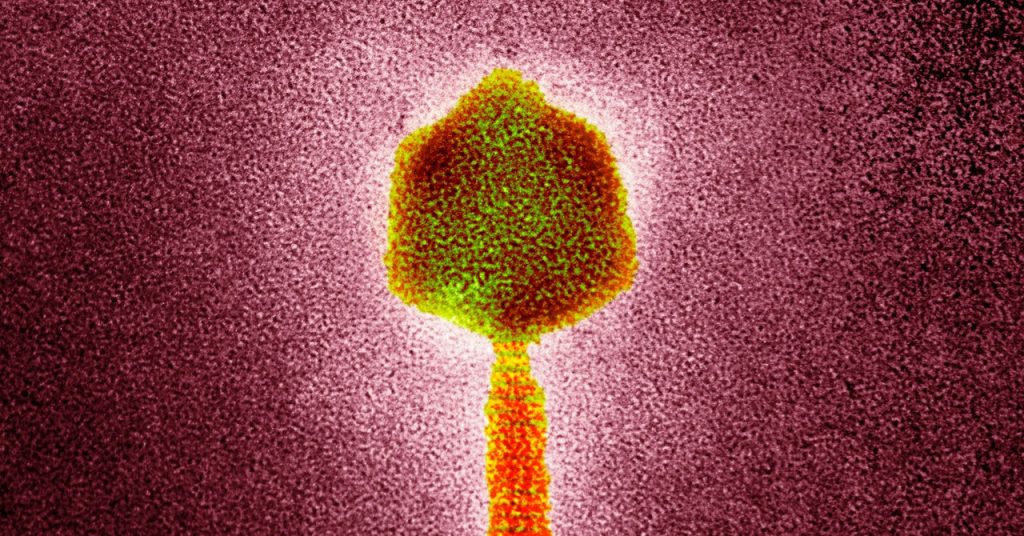A New Hope: Phage Therapy Offers Promise in the Fight Against Antibiotic-Resistant Bacteria
The Persistent Threat of Enterococcus faecium
Lynn Cole battled a relentless infection caused by Enterococcus faecium, a bacteria commonly found in hospitals. Despite multiple antibiotic treatments, the bacteria persisted in her bloodstream, leaving her doctors searching for alternative solutions.
Exploring Phage Therapy: A Precision Medicine Approach
In a last-ditch effort, Cole and her family turned to phage therapy, an experimental treatment that uses viruses called bacteriophages to target specific bacterial strains. While not yet approved in the US, UK, or Western Europe, phage therapy is regularly used in countries like Georgia, Poland, and Russia.
Researchers at the University of Pittsburgh School of Medicine collaborated with colleagues at the University of Colorado Anschutz School of Medicine to find a phage that would work against Cole’s particular bacterial strain. As Breck Duerkop, an associate professor at the University of Colorado, explains, “The thing about phages is that they’re very much the perfect example of precision medicine, because they are so exquisitely specific to a bacterium.”
The Hunt for the Perfect Phage
To find a suitable phage, researchers screened dozens of samples isolated from wastewater, where gut bacteria like E. faecium are abundant. After extensive testing, they identified a phage that could target Cole’s specific bacterial strain.

A plate of phages growing in researcher Daria Van Tyne’s lab at the University of Pittsburgh School of Medicine
Administering Phage Therapy: Challenges and Breakthroughs
The Pitt team prepared two formulations of the phage: a drinkable version and an intravenous one. Cole started taking the phage alongside antibiotics, and within 24 hours, her blood infection cleared, allowing her to leave the hospital. However, short-lived breakthrough infections indicated that the bacteria was evolving to evade the therapy.
Researchers found a second phage that worked for a longer period, clearing the bacteria from Cole’s blood for four months—the longest she’d been infection-free. This allowed her to enjoy a much-needed family beach vacation.
The Limitations of Phage Therapy
Despite the initial success, Cole’s progress was short-lived. Her blood infection returned, and doctors determined that the phage-antibiotic combination was no longer effective. Further tests revealed the presence of antibodies against the phage, suggesting that her immune system had activated in a way that blocked the phage from attacking the bacteria.
“From two to four weeks is probably where we’re getting the most bang for our buck with the phages before the body starts making antibodies against them.”
Madison Stellfox, a postdoctoral infectious diseases fellow at Pitt and lead author of the study, suggests that phages might be better suited as short-term treatments.
The Future of Phage Therapy
Clinical trials are underway to further investigate the potential of phage therapy. Researchers are exploring the use of multiple phages simultaneously to reduce the risk of bacterial resistance. Saima Aslam, an infectious disease specialist at the University of California, San Diego, emphasizes the importance of using a combination of phages with different attachment mechanisms to overcome resistance.
While phages are unlikely to replace antibiotics entirely, they could become a powerful tool in combating drug-resistant bacterial infections. For Lynn Cole’s daughter Mya, the extra time her mother gained through phage therapy was invaluable, and she remains hopeful that her mother’s experience will help pave the way for future patients to be cured.

6 Comments
The super bacteria-killing virus in sewage strikes again, flushing out antibiotic resistance!
Wastewater: the unexpected hero in the battle against zombie bacteria!
Wastewater virus: 1, Zombie bacteria: 0. Game over!
Wastewater wins the battle against the undead bacteria, proving that even the dirtiest of places can hold the key to victory
Wastewater virus emerges as the unlikely savior in the fight against the woman’s relentless bacterial foe
The unsung hero of wastewater saves the day, proving that not all bacteria are created equal!